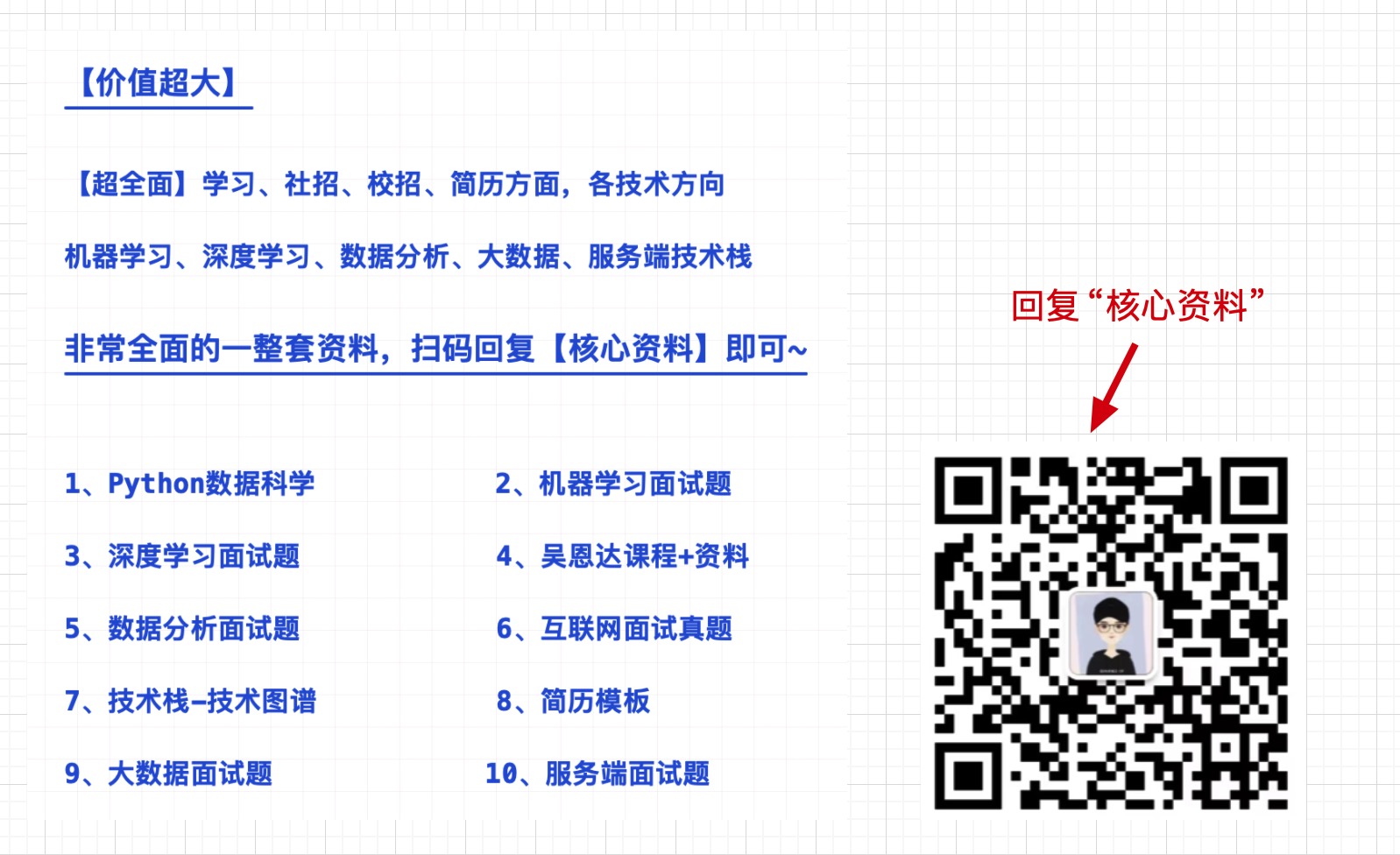CV学习笔记-BP神经网络代码Python实例
一. 任务描述
给定数据集(txt文件),采用随机梯度下降的方式进行神经网络的学习,完成权重参数的更新,使得输入的数据能够接近输出label。
关于BP神经网络的手推和原理见笔者《CV学习笔记-推理和训练》、《CV学习笔记-BP神经网络》
txt文件类似下图所示

col1col2col3输入1输入2label
; 二. 程序设计
1. 神经网络设计
类: NeuralNetWork
类内初始化: __init__用以设置神经网络的参数(输入层参数、隐藏层参数、输出层参数、学习率)
类内方法: train用于训练数据,更新权重
读取数据: loadDataSet用于在txt文件中读取数据,包括输入值和label值
随机梯度下降处理: stocGradDescent用于处理训练数据的过程
2. 具体设计
- NeuralNetWork类
class NeuralNetWork:
def __init__(self, input_nodes, hidden_nodes, out_nodes, lr):
self.innodes = input_nodes
self.hnodes = hidden_nodes
self.onodes = out_nodes
self.lr = lr
self.weight_i2h = (numpy.random.normal(0.0, pow(self.hnodes,-0.5), (self.hnodes,self.innodes) ) )
self.weight_h2o = (numpy.random.normal(0.0, pow(self.onodes,-0.5), (self.onodes,self.hnodes) ) )
self.activation_function = lambda x: 1.0/(1+np.exp(-x))
pass
'''
训练方法,输入一次训练的输入和label
'''
def train(self, inputs_list, targets_list):
inputs = numpy.array(inputs_list, ndmin=2).T
target = np.array(targets_list, ndmin=2).T
hidden_inputs = np.dot(self.weight_i2h, inputs)
hidden_outputs = self.activation_function(hidden_inputs)
o_inputs = np.dot(self.weight_h2o, hidden_outputs)
o_outputs = self.activation_function(o_inputs)
loss = (target - o_outputs) ** 2 * 0.5
error = target - o_outputs
hidden_error = np.dot(self.weight_h2o.T, error * o_outputs * (1 - o_outputs))
gradO = error * o_outputs * (1 - o_outputs)
self.weight_h2o += self.lr * np.dot((error * o_outputs * (1 - o_outputs)), np.transpose(hidden_outputs))
gradI = hidden_error * hidden_outputs * (1 - hidden_outputs)
self.weight_i2h += self.lr * np.dot((hidden_error * hidden_outputs * (1 - hidden_outputs)),
np.transpose(inputs))
return loss
- 读取数据集并处理
def loadDataSet():
data = []
label = []
fr = open('testSet.txt')
for line in fr.readlines():
lineArr = line.strip().split()
data.append([1.0, float(lineArr[0]), float(lineArr[1])])
label.append(int(lineArr[2]))
data = np.array(data)
label = np.array(label)
return data, label
- 训练过程处理
def stocGradDescent(data, label):
m, n = np.shape(data)
for iter in range(200):
total_loss = 0
for i in range(m):
total_loss += net.train(data[i], label[i])
print("NO.{} Loss={}".format(iter, total_loss))
三、实践代码
import numpy
import numpy as np
class NeuralNetWork:
def __init__(self, input_nodes, hidden_nodes, out_nodes, lr):
self.innodes = input_nodes
self.hnodes = hidden_nodes
self.onodes = out_nodes
self.lr = lr
self.weight_i2h = (numpy.random.normal(0.0, pow(self.hnodes,-0.5), (self.hnodes,self.innodes) ) )
self.weight_h2o = (numpy.random.normal(0.0, pow(self.onodes,-0.5), (self.onodes,self.hnodes) ) )
self.activation_function = lambda x: 1.0/(1+np.exp(-x))
pass
def train(self, inputs_list, targets_list):
inputs = numpy.array(inputs_list, ndmin=2).T
target = np.array(targets_list, ndmin=2).T
hidden_inputs = np.dot(self.weight_i2h, inputs)
hidden_outputs = self.activation_function(hidden_inputs)
o_inputs = np.dot(self.weight_h2o, hidden_outputs)
o_outputs = self.activation_function(o_inputs)
loss = (target - o_outputs) ** 2 * 0.5
error = target - o_outputs
hidden_error = np.dot(self.weight_h2o.T, error * o_outputs * (1 - o_outputs))
gradO = error * o_outputs * (1 - o_outputs)
self.weight_h2o += self.lr * np.dot((error * o_outputs * (1 - o_outputs)), np.transpose(hidden_outputs))
gradI = hidden_error * hidden_outputs * (1 - hidden_outputs)
self.weight_i2h += self.lr * np.dot((hidden_error * hidden_outputs * (1 - hidden_outputs)),
np.transpose(inputs))
return loss
def loadDataSet():
data = []
label = []
fr = open('testSet.txt')
for line in fr.readlines():
lineArr = line.strip().split()
data.append([1.0, float(lineArr[0]), float(lineArr[1])])
label.append(int(lineArr[2]))
data = np.array(data)
label = np.array(label)
return data, label
def stocGradDescent(data, label):
m, n = np.shape(data)
for iter in range(200):
total_loss = 0
for i in range(m):
total_loss += net.train(data[i], label[i])
print("NO.{} Loss={}".format(iter, total_loss))
if __name__ == '__main__':
input_nodes = 3
hidden_nodes = 3
output_nodes = 1
learning_rate = 0.1
net = NeuralNetWork(input_nodes, hidden_nodes, output_nodes, learning_rate)
data, label = loadDataSet()
stocGradDescent(data, label)
print(net.weight_i2h)
print(net.weight_h2o)
pass
txt文本文件内容请自行复制
-0.017612 14.053064 0
-1.395634 4.662541 1
-0.752157 6.538620 0
-1.322371 7.152853 0
0.423363 11.054677 0
0.406704 7.067335 1
0.667394 12.741452 0
-2.460150 6.866805 1
0.569411 9.548755 0
-0.026632 10.427743 0
0.850433 6.920334 1
1.347183 13.175500 0
1.176813 3.167020 1
-1.781871 9.097953 0
-0.566606 5.749003 1
0.931635 1.589505 1
-0.024205 6.151823 1
-0.036453 2.690988 1
-0.196949 0.444165 1
1.014459 5.754399 1
1.985298 3.230619 1
-1.693453 -0.557540 1
-0.576525 11.778922 0
-0.346811 -1.678730 1
-2.124484 2.672471 1
1.217916 9.597015 0
-0.733928 9.098687 0
-3.642001 -1.618087 1
0.315985 3.523953 1
1.416614 9.619232 0
-0.386323 3.989286 1
0.556921 8.294984 1
1.224863 11.587360 0
-1.347803 -2.406051 1
1.196604 4.951851 1
0.275221 9.543647 0
0.470575 9.332488 0
-1.889567 9.542662 0
-1.527893 12.150579 0
-1.185247 11.309318 0
-0.445678 3.297303 1
1.042222 6.105155 1
-0.618787 10.320986 0
1.152083 0.548467 1
0.828534 2.676045 1
-1.237728 10.549033 0
-0.683565 -2.166125 1
0.229456 5.921938 1
-0.959885 11.555336 0
0.492911 10.993324 0
0.184992 8.721488 0
-0.355715 10.325976 0
-0.397822 8.058397 0
0.824839 13.730343 0
1.507278 5.027866 1
0.099671 6.835839 1
-0.344008 10.717485 0
1.785928 7.718645 1
-0.918801 11.560217 0
-0.364009 4.747300 1
-0.841722 4.119083 1
0.490426 1.960539 1
-0.007194 9.075792 0
0.356107 12.447863 0
0.342578 12.281162 0
-0.810823 -1.466018 1
2.530777 6.476801 1
1.296683 11.607559 0
0.475487 12.040035 0
-0.783277 11.009725 0
0.074798 11.023650 0
-1.337472 0.468339 1
-0.102781 13.763651 0
-0.147324 2.874846 1
0.518389 9.887035 0
1.015399 7.571882 0
-1.658086 -0.027255 1
1.319944 2.171228 1
2.056216 5.019981 1
-0.851633 4.375691 1
-1.510047 6.061992 0
-1.076637 -3.181888 1
1.821096 10.283990 0
3.010150 8.401766 1
-1.099458 1.688274 1
-0.834872 -1.733869 1
-0.846637 3.849075 1
1.400102 12.628781 0
1.752842 5.468166 1
0.078557 0.059736 1
0.089392 -0.715300 1
1.825662 12.693808 0
0.197445 9.744638 0
0.126117 0.922311 1
-0.679797 1.220530 1
0.677983 2.556666 1
0.761349 10.693862 0
-2.168791 0.143632 1
1.388610 9.341997 0
0.317029 14.739025 0
四、 效果测试

通过debug看效果:
可见刚开始网络的输出跟label的差距还是很大

可以看到训练到一百多代的时候loss已经有了明显的下降

此时debug看效果,可以看到效果明显改善,网络的输出已经比较小接近于真实label:0了

label为1的效果也靠谱很多了

最后打印出权重参数:

Original: https://blog.csdn.net/qq_38853759/article/details/126039931
Author: Moresweet猫甜
Title: CV学习笔记-BP神经网络代码Python实例
原创文章受到原创版权保护。转载请注明出处:https://www.johngo689.com/758833/
转载文章受原作者版权保护。转载请注明原作者出处!

